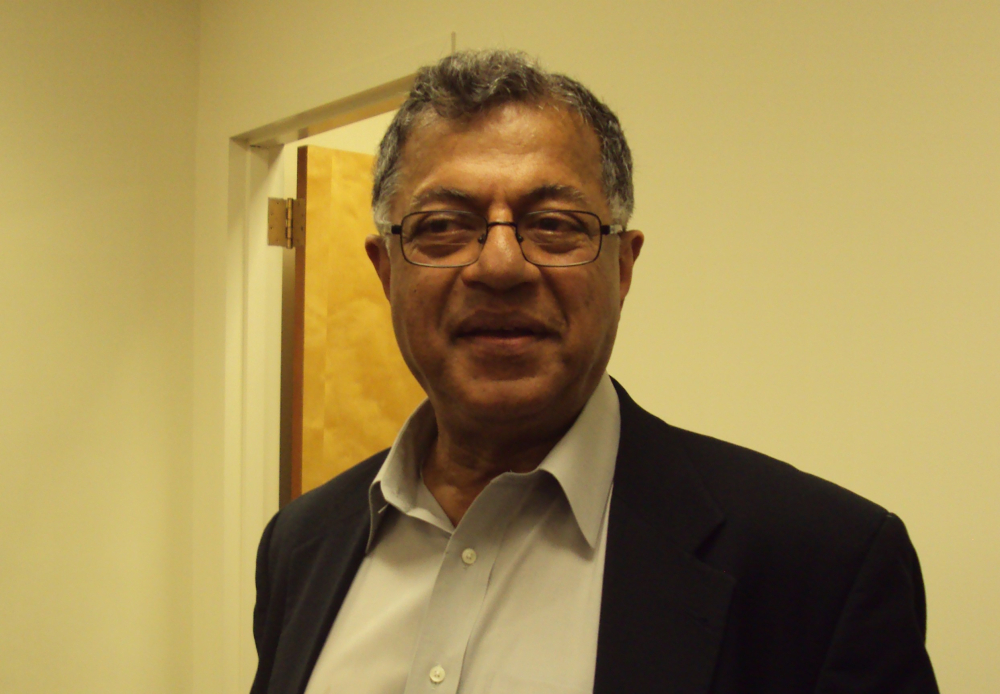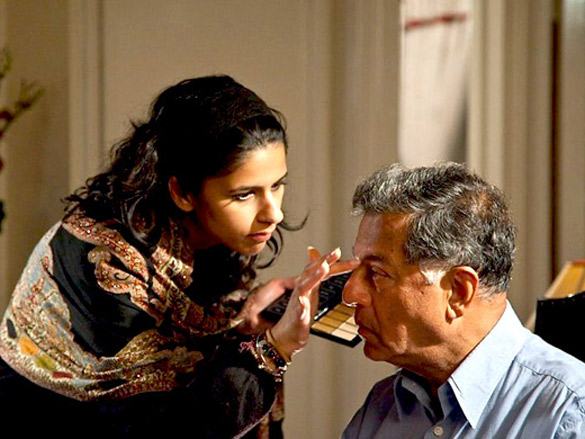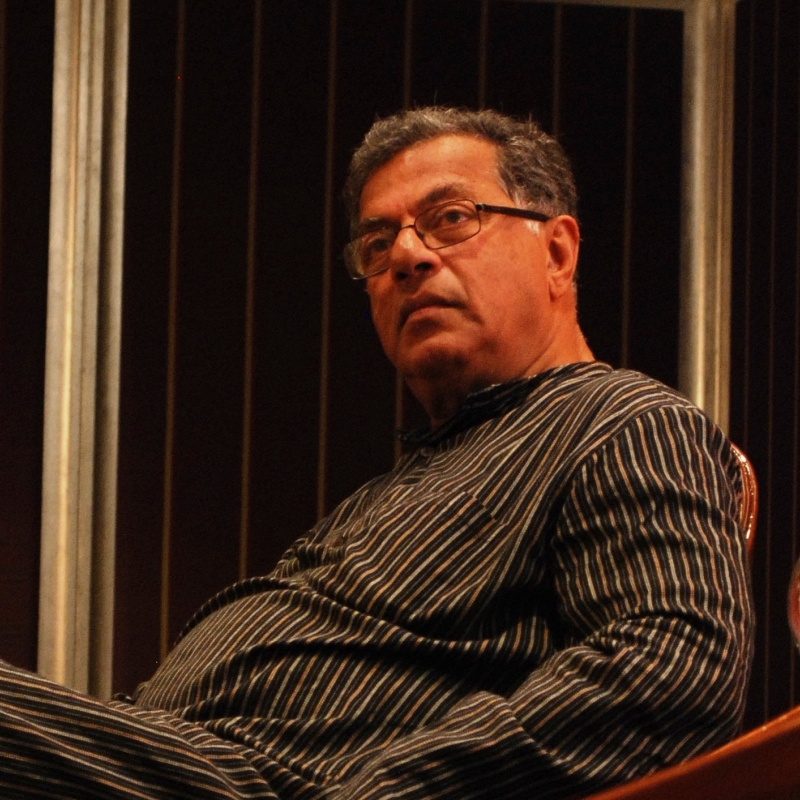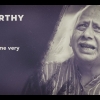Girish Karnad represented 'an era of a certain kind of liberal imagination'. With irrepressible creative energy, rare in any age, Karnad had many successes across several spheres of culture: cinema, acting, direction, cultural imagination and, towards the end of his life, politics of protest. We look at his impact through two of his most celebrated plays, Tughlaq and Taledanda. (Photo Courtesy: Pushkarv [CC by 3.0])
‘A thousand lamps of civilisation die out’—this is a quote from the Bengali poem, On 31st January 1948, by Bishnu Dey, written after the assassination of Mahatma Gandhi.
Why do I begin a tribute to Girish Karnad with these lines? When Dey wrote this poem, there was still hope that at least a hundred lamps of civilisation would be reignited in post-Independence India. But we are now living through the painful twilight of modernity and postmodernity governed by market-driven neocolonialism, which is far more unsettling and devastating than the previous avatars of colonialism.

Karnad actively protested against human rights violations and deserves appreciation for boldly speaking out against forces of religious fundamentalism (Courtesy: Srtejaswi at the English Wikipedia [GFDL])
Neocapitalism and Karnad
Across the world, the historically unprecedented upsurge of the neocapitalist market is hounded by its dark and sinister antagonist—religious fundamentalism. In the past, at such moments of turmoil, the indomitable force of artistic imagination used to point the way forward. But today, art too has become a captive of the market economy. This is the historical context in which the widely celebrated and highly exported Indian playwright Karnad passed away. Amid the deluge of condolences and commiserations, many recounted how, in the past decade, the award-winning Kannada writer had been actively campaigning against the resurgence of religious chauvinism. He had also actively protested against human rights violations. Karnad, without a doubt, deserves appreciation for boldly speaking out against forces of religious fundamentalism. It must have taken a lot of courage for him to stand up against the impending chaos through explicit postures and statements. However, the artist speaks more through his works than through his words and actions.
Apart from Karnad’s posturing and his statements in the media, how did he, as an artist, respond to the process of barbarisation being carried out in the name of civilisation? Let me try to address this question in the light of his two celebrated plays Tughlaq and Taledanda (translated as Death by Beheading in English and Raktakalyan in Hindi).
Tughlaq
It was Karnad’s second play, Tughlaq (1964), that established him nationally and internationally when he was only 26. The Kannada play, first produced by Professor B. Chandrashekar, was later masterfully translated into Hindustani by B.V. Karanth. Though the Kannada production made quite an impact locally, it was only when Karanth’s translation was picked up for production by Ebrahim Alkazi, the doyen of modern Indian theatre, that it gained international recognition. Alkazi produced the play for the National School of Drama and it was later staged at the Purana Qila, with legendary actor Manohar Singh playing the lead. The play depicted Muhammad bin Tughlaq, the 14th-century sultan of Delhi, as a great visionary and a great flop. Every time he tried to push his utopian vision forward, heads rolled and blood flowed. Somehow, because of the time period and place in which Karnad set Tughlaq, the play became a metaphor for the ambivalences and contradictions of the Nehruvian socialist-democratic utopia.

Karnad had many successes across several spheres of culture: cinema, acting, direction, cultural imagination and, towards the end of his life, politics of protest (Courtesy: Bollywood Hungama [CC BY 3.0])
Talendanda
By accident, Taledanda (1990) too became a political allegory, representing the angst of post-Indira Gandhi India. Unlike Tughlaq, this play was based on a region-specific episode from Karnataka’s history—the legendary 12th-century Lingayat uprising, a socio-spiritual movement led by Basavanna. A lot had already been written on this subject, including two widely acclaimed modern plays by P. Lankesh (Sankranti) and myself (Mahachaitra). There have been several critical writings in Kannada on the comparative merits and demerits of these two plays in relation to Karnad’s play, which was the last in the series. Without going into detail, I would like to dwell a little on Karnad’s Taledanda and its portrayal of the reform movement. Lankesh turned the story into an allegory of the conflict between Gandhian idealism and Nehruvian pragmatism. The play was a poignant depiction of how idealism gives way to the demands of political pragmatism and survival. My own play, Mahachaitra, looked at the movement from the angle of class struggle, without losing sight of its spiritual dimensions.
Though Taledanda has more historical information packed into it, the play focuses on Emperor Bijjala, the antagonist of the story. By contrast, Basavanna and his followers seem to be very docile characters, and Basavanna, in particular, is divested of all reformatory zeal. He even objects to the violative Brahmin–Dalit marriage by invoking, of all people, Shankaracharya. When, in the play’s climax, the members of the reformatory sects are hounded and butchered by the now-triumphant Sovi Deva, two fanatical followers of the new sect murder Bijjala in cold blood.
Karnad as a Playwright, and His Legacy
Karnad’s successive historical plays, Taledanda and The Dreams of Tipu Sultan (1997), have protagonists who are somewhat diluted reincarnations of Tughlaq. Though Tughlaq’s idealism leads to a fiasco, the power of his failed idealism in the play more than compensates for his historical failure. The play, therefore, takes on a tragic dimension, though it acknowledges the failure of the noblest of human imaginations to contain cruelty and chaos. Karnad himself notes how he was shocked to see human brutality unfold on the stage between blackouts. In one of his notes on the production, Karnad said:
. . . the very notion of laying bare the inner recesses of the human psyche like this for public consumption seemed obscene. What impressed me as much as the psychological cannibalism of the play was the way lights faded in and out on stage … we [Karnad and his contemporaries] stepped out of mythological plays lit by torches or petromax lamps straight into [August] Strindberg and dimmers.[i]
Also Watch | In Conversation with Girish Karnad: On his 'Education' in Theatre
However, in his later plays, with the absence of Tughlaq-esque protagonists, this balance is missing. Bijjala, Tippoo and Ramaraya (from his last play, Rakshasa Tangadi) do not have the poetic vision of Tughlaq. Lacking an iota of human compassion, they try to manipulate the world to satisfy their whims.
The French–Algerian writer and philosopher Albert Camus pointed out that for a tragedy to work, the two opposites—human will and the impersonal forces of fate or history—should be present in equal proportion. In Tughlaq, though the two opposing forces are in almost-equal proportion, what they confront are neither fate nor history, but the chaos of the absurd. In his later historical plays, the human will of the protagonist is no match for the surrounding chaos.
As Menon observes in his obituary for the playwright, ‘did not point to alternatives along a Gandhian or Socialist path. He merely saw, with great empathy, the collapse of an established order with its inherent idealisms. It proved to be prophetic.’ [ii] In the same darkness and tyranny, Karnad—in his latest avatar of a spokesperson of human liberty—opposed fearlessly.
Somehow because of its timing, Karnad's play Tughlaq became a metaphor for the ambivalences and contradictions of the Nehruvian socialist-democratic utopia (Courtesy: Sahapedia.org)
Making Connections
What I am looking for is a connection between the playwright (in whose plays the triumph of tyranny and darkness is a bygone conclusion) and the bold protestor against cruelty in the world outside his plays. However, I cannot find any link. I am not arguing that the playwright should have provided an easy solution, as is seen in progressive theatre. Neither progressive drama of the superficial kind nor modernist drama is dialectical. In Karnad’s Tughlaq and in Muktadhara by Rabindranath Tagore (whom Karnad considered no playwright), the dramatic energy is because of these dialectics.
Karnad represents an era of liberal imagination synchronous with the twilight of liberal and socialist practices in society politics. Karnad had many successes across several spheres of culture: cinema, acting, direction, cultural imagination and, towards the end of his life, politics of protest.
This article was first published on Firstpost
Notes
[i] Sadanand Menon, ‘Girish Karnad—1938–2019: Probing the Present while “Nailed to the Past,"' 2019, https://www.asiavillenews.com/article/girish-karnad-7331 (last accessed June 19, 2019)
[ii] Ibid.













